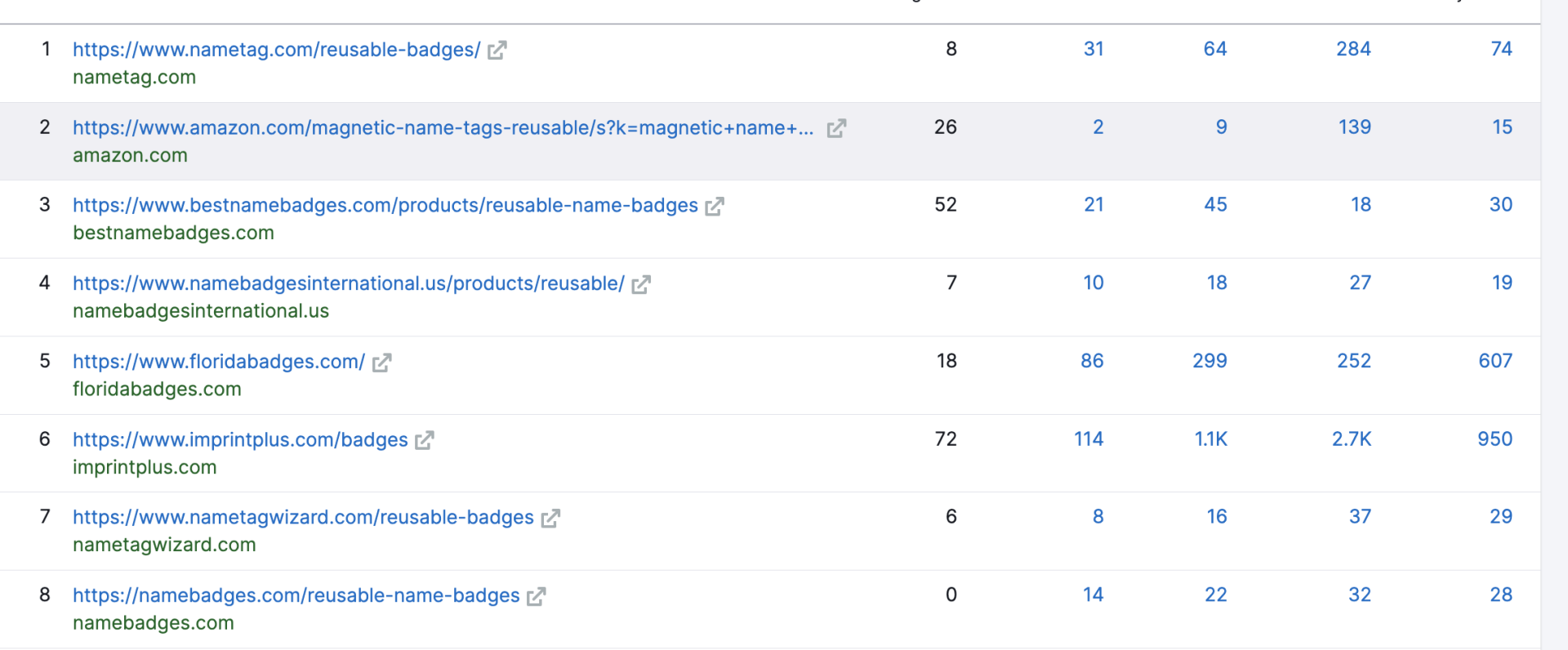What is Topical Authority in SEO and How to Grow It
Share article
In the world of SEO, topical authority is key. If you want to rank high in search engine results pages (SERPs), you need to make sure your website is authoritative on a particular topic. But what is topical authority, and how can you improve yours? In this blog post, we will discuss topical authority and ways you can improve your ranking on SERPs.
- What is topical authority?
- How can you improve your topical authority on a particular topic or niche?
- SEO Topical Authority Q & A
What is Topical Authority?
Topical authority is an SEO concept that refers to a website's ability to be considered an expert or reliable source on specific topics. These topics could apply to anything from product reviews and educational materials to news articles, blog posts, and other types of content. The idea is to ensure that search engines are able to distinguish between sites that can provide valuable information on the topic rather than sites that have poor-quality content or are simply trying to promote their own products or services. To generate topical authority, websites should focus on optimizing relevant keywords and closely related phrases as well as producing content with fresh insights that add value for readers. Additionally, creating links with other internal and external webpages will further demonstrate the site's expertise while providing helpful information for its visitors.
For example, if you are a roofing company and your website wants to rank for your main services (roofing contractors near me, roof replacements, emergency roof repairs, etc) you would need to create content that provides valuable information about each of these topics. This could include blog posts explaining the different roofing materials, tips on how to repair a roof leak, or even articles discussing the latest trends in roofing. All of this content should be optimized for specific keywords related to your business and should also link back to other relevant webpages on your website.
Benefits of Growing Topical Authority
One of the major benefits of developing topical authority for your website is that it can help to increase your search engine rankings. Search engines are always on the lookout for websites that have respected experts providing authoritative content related to certain topics, so having a high level of topical authority can significantly improve your chances of appearing near the top of SERPs. Additionally, providing quality content and insights about your topic can help to attract potential customers and establish your website as a trusted source of information on the subject.
Here's an example of a search for "reusable name badges"
As you can see, you might expect amazon to be #1 due to their domain authority and overall rankings, however, you can see that nametag is currently outranking them. An explanation could be that they have more backlinks AND that they have a higher topical authority as their site may be predominately focused on name tags overall vs amazon, which has a large variety of topics they cover and sell.

Another benefit of topical authority is that it can help you gain more visibility and recognition from your target audience. Creating content related to the topics you specialize in will not only make your website more noticeable, but it could also give people an improved understanding of what your business does and how you can help them. This can also result in receiving natural shares on social media as well as genuine backlinks. The entire concept of backlinks is similar to word of a word-of-mouth referral. They shouldn't be forced, purchased or solicited, instead, well written and informative content can motivate and inspire a site or user to reference your content.
How Can You Improve Your Topical Authority?
If you're looking to improve your website's topical authority, here are a few steps you can take when it comes to creating new content.
1 - In Depth Keyword Research:
Before you can start writing content for your website, it's important to have a clear understanding of the keywords and phrases that you want to target. Conducting thorough keyword research will help to ensure that you are creating content around topics that customers are actually searching for.
Keyword Research Recommended Steps
- Use a recommended tool like Semrush's keyword major tool. Enter in the keyword phrases you may want to create related content for. Note the variations for each phase, difficulty, search volume etc...
- While in Semrush's keyword tool, you can click on the phrase you want to rank for. This will show you related keywords, Questions around this phrase and the top SERP listings for this search. Make a note of all of these to consider in writing your new content.
- Take the SERP listings you see in this report and do a exact domain search for these. This will show you the page that's ranking as well as all of the keyword phrases these rank for. Make a list of all the variations and compile a list of phrases that are relative to your content.
- Use google search drop down to see types of searches related to the search you are typing. This is a great free tool that will show you trending and popular search terms based on the search query you are typing.
2 - Create keyword clusters
After you have accumulated a list of relevant keywords, it's time to start organizing them into keyword clusters. This will help to ensure that all of your content is centered around one main topic and related phrases. Doing this will help to increase the topical authority of your page and make it easier for search engine bots to crawl and understand the overall theme.
Gone are the days of choosing one keyword phrase and making a single page or blog post about that phrase. Instead, find the main topic and incorporate 5-10 keyword clusters around that topic. This will help you rank not only for your main phrase, but also potentially rank for several rated searches relevant to your industry.
3 - Publish New Content
Once you have created keyword clusters, it's time to begin writing content around them. Ensure that your content is well written and detailed, as this will help to ensure that Google and other search engines understand the overall theme of your page. If you want to further improve your topical authority, consider linking out to authoritative websites related to the topics covered in your content. This will validate your page and help to solidify your website as an authority in the field.
4 - Manually Update Your Sitemap
After publishing your new content, manually update your website's sitemap. This will help to ensure that search engines understand the topics of your content and can start ranking them accordingly. We've been finding google to be slow in updating website sitemaps AND we've seen updates not crawl pages that are correctly published on the sitemap. Be sure to resubmit your sitemap each time you publish updated content and you may even have to do a manual URL request to speed up the process. In recent months, we've decided that our standard practice for our SEO clients is to update their sitemap, test new page content URL, verify the URL and request indexing manually - this has seemed to fix the issue with slow indexing.
5 - Monitor & Measure
Lastly, it's important to monitor and measure how well your content is performing in organic search results. Doing so will allow you to adjust your strategy if need be and ensure that your content is being seen by the people you are targeting.
Grow your Topical Authority
By following these steps, you can improve your website's topical authority in SEO and start ranking for related search queries in no time. Keep up with regular keyword research, create content clusters relevant to the topic and monitor & measure the performance of your content - this is the key to successful SEO. Good luck!
SEO Topical Authority Q & A
Questions? Have a project you're ready to launch?
Simply text our team at
(857) 256-1295 or send us a message!
Latest Articles




